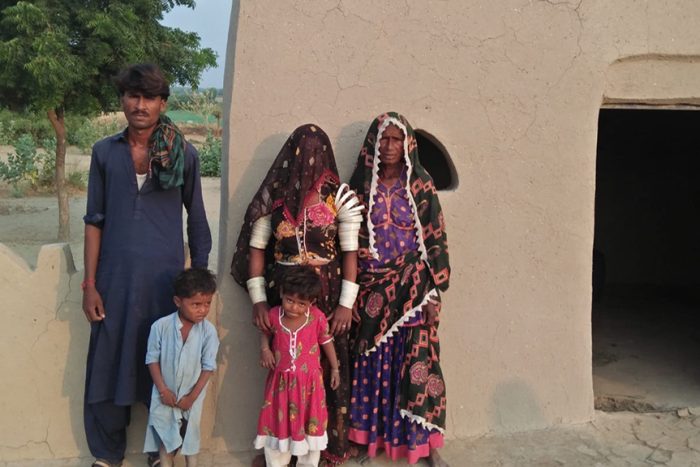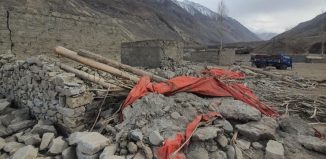Lachhman’s Battle Against Climate Change’s Impact on Agriculture
Life has taken a harsh turn for Lachhman, a 26-year-old father of two in a small village in Union Council Faqeer Abdullah of District Umerkot, Sindh. His family of five—two young daughters aged eight and seven, his wife, and his mother—depend entirely on agriculture as their primary source of income. On their five acres of rain-fed land, they once grew crops such as cluster beans, moth beans, and millet, which thrived in good rainfall seasons. This brought a yearly income of around PKR 70,000 to 80,000 (approximately 288 USD).
However, for the past five years, irregular and increasingly unreliable rainfall has made this a once-stable source of income precarious. The crop yield from their land has fallen by 50%, and rising inflation has made survival incredibly difficult for the family. Their total household expenditure, almost PKR 10,000 to 12,000 (approximately 44 USD), has become nearly impossible to meet for the couple. As a result, the children cannot attend school—not just due to financial constraints but also because there is no school available in their village.
Recognising the challenges faced by agricultural communities like Lachhman’s, Community World Service Asia (CWSA) initiated a humanitarian project titled “Strengthening the Livelihoods and Resilience of Vulnerable Agricultural Communities in Rural Sindh, Pakistan”, supported by Diakonie Katastrophenhilfe (DKH). This initiative is specifically designed to support families whose livelihoods depend heavily on agriculture and have been severely impacted by unpredictable weather patterns and climate change impact, in terms of a significant drop in their income. The project aims to enable these families to adapt and survive in these challenging and evolving conditions.
Lachhman’s family was selected to receive assistance under this project, as their livelihood was 75% reliant on agriculture, and their income had drastically decreased due to poor crop yields. Lachhman received Multipurpose Cash Assistance (MPCA), distributed through mobile cash transfers (Telenor mobile wallet accounts). On October 8, 2024, he received his first installment of PKR 17,000 (approximately 62 USD). A total of five installments of the same amount will be provided, totaling PKR 85,000 (approximately 306 USD), during the project.
This first installment was a lifeline for Lachhman and his family. With the money, he bought new clothes for his children and met other essential needs, such as groceries. The timing of this assistance was important, as his crops were not yet ready for harvesting[1], and the family had no other source of income. Without this support, Lachhman might have had to borrow money, causing further financial difficulties.
For the future, Lachhman is already planning to invest the next installment in a small tuck shop. He requires PKR 15,000 to 20,000 (approx. USD 54 to 72) to fulfill this dream. He hopes this new business will provide his family with a steady daily income of PKR 200 to 300 (approx. USD 1 to 2), while also benefiting other villages, as there is currently only one shop in the area. In the meantime, Lachhman has also started cultivating his land again, planting cluster beans on two acres, moth beans on one acre, and millet on the remaining two acres. He managed to buy the seeds even before he received the financial assistance.
“I am very thankful to the whole team at CWSA for this immense support. If I had to borrow from someone, it would have caused a lot of difficulties going forward,” Lachhman said gratefully.
The selection of participating families in the project began in late August 2024, and CWSA had started providing much-needed financial assistance to those most in need by October. Through these efforts, families can survive the economic hardships brought on by climate change and maintain their livelihoods in the face of unpredictable weather conditions.
This initiative not only addresses immediate financial needs but also helps these vulnerable communities build resilience for the future. It helps reduce their suffering and survive challenging times with dignity. With support like this, families like Lachhman’s have hope for a more stable and prosperous future, despite the continuing challenges they face due to climate change and subsequent economic hardships.
[1] August is typically the harvest time for cluster beans and millet, but these had been severely affected







